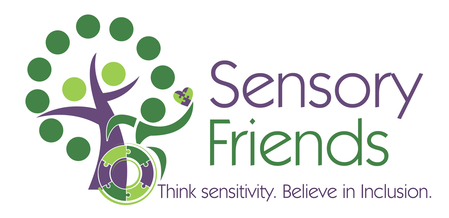
· Cultural Differences: If the leadership and overall climate of the school doesn’t welcome parents to be involved, then sadly, parents won’t be. On the other hand, some parents believe and trust wholeheartedly in leaving all decision-making (placement, activities, testing, etc.) to the school.
· We Truly Don’t Know – Teachers learn everything there is to know about how to teach and engage children (with disabilities or without), but they don’t always learn about how to communicate with and engage parents. On the other hand, no one trains parents on the concepts of the IEP or Parent-Teacher meetings. Often times, parents are blind-sided with acronyms and terms they’ve never learned.
We can improve relationships (even the really challenging ones) by first dispelling the myths and fixed assumptions that some parents and educators have believed in for so many years because of past experiences. For the sake of our children’s academic success, we’re going to need to let go of negative experiences and focus on creating positive ones. This may have to be done by either the parent or teacher taking on a leadership role. It is possible for a parent to play that leadership role without going to their child’s school.
So, how do you improve your relationship with your child's school?
Communication Preferences: How you and your child’s teacher communicates should be the first thing discussed. Some people prefer email, texting, or the good old-fashioned phone call. Try to be mindful of each other’s preferences if they differ from your own. The objective is to keep the dialogue open and frequent.
Information Sharing: Teachers often send home forms, questionnaires, or surveys for parents to fill out. Aside from emergency contact information, they may be asking for information about your child (learning preferences, behavioral strategies, preferred foods, eating habits, routines, etc.). When Richie first entered the public school special education system at three years old, I created an “All About Me” book for each of his teachers and the before and after school care providers. Here is the first book I made, I updated it every year (teacher’s don’t need it to be fancy, just include all the important information about your child).
| about_richie.pdf |
If your child’s school doesn’t send out a survey about how you can help, you might want to offer things you can do to help the school. Send a kind letter to your child’s teacher and front office clerk (often times this person is the central hub of the school and knows the most about all departments). Include information about the things you can do. You may not be able to attend school events, but you can help market school events by asking if you can create a parent Facebook page. Social networking has become a fun and effortless way to share and market information. Maybe you can donate items for school projects (clothes, toys, books, empty water or milk bottles are often used for art projects, etc.). Perhaps you’re skilled with creating, writing and designing flyers and can help the school by creating announcements or the school newsletter. If accounting is your specialty, maybe you can help the PTA with their budget reports. Schools are always in need of help, but if we don’t connect, we won’t know of each other’s skills and needs. These gestures, no matter how small, will be greatly appreciated by school.
Sharing Resources: Many schools will collect information on community resources that can help diverse families in various ways. Some might even create a resource guide (this is actually considered a best practice) that includes a comprehensive list of agencies that can be very resourceful to families (food pantries, financial assistance, transportation, advocacy, etc.). Offer to share any resources you may have come to learn over the years. If the school doesn't have a parent resource list, ask if you can assist with starting one. Your neighboring schools may have already created one and might be willing to share theirs with you, this will give you a great head start.
It’s also important to remember that we all have different personalities, and sometimes that makes relationship building difficult. You might be an incredibly organized parent, who has all appointments, tasks and deadlines well-noted. Your child’s teacher, while gifted at making learning fun, might be a hot mess when it comes to being organized. This can be a recipe for a challenging parent-teacher relationship, but it doesn’t have to be. We can learn to understand and embrace the differences in how we all get to the finish-line. Some of us like to run fast, some prefer to jog at a slow and steady pace, some of us like to walk and take our time. No matter what methods are chosen, we should all keep in mind that as long as we have a shared goal, the only measurement that truly matters, is how much we support one another.
© 2015 Sensory Friends

 RSS Feed
RSS Feed